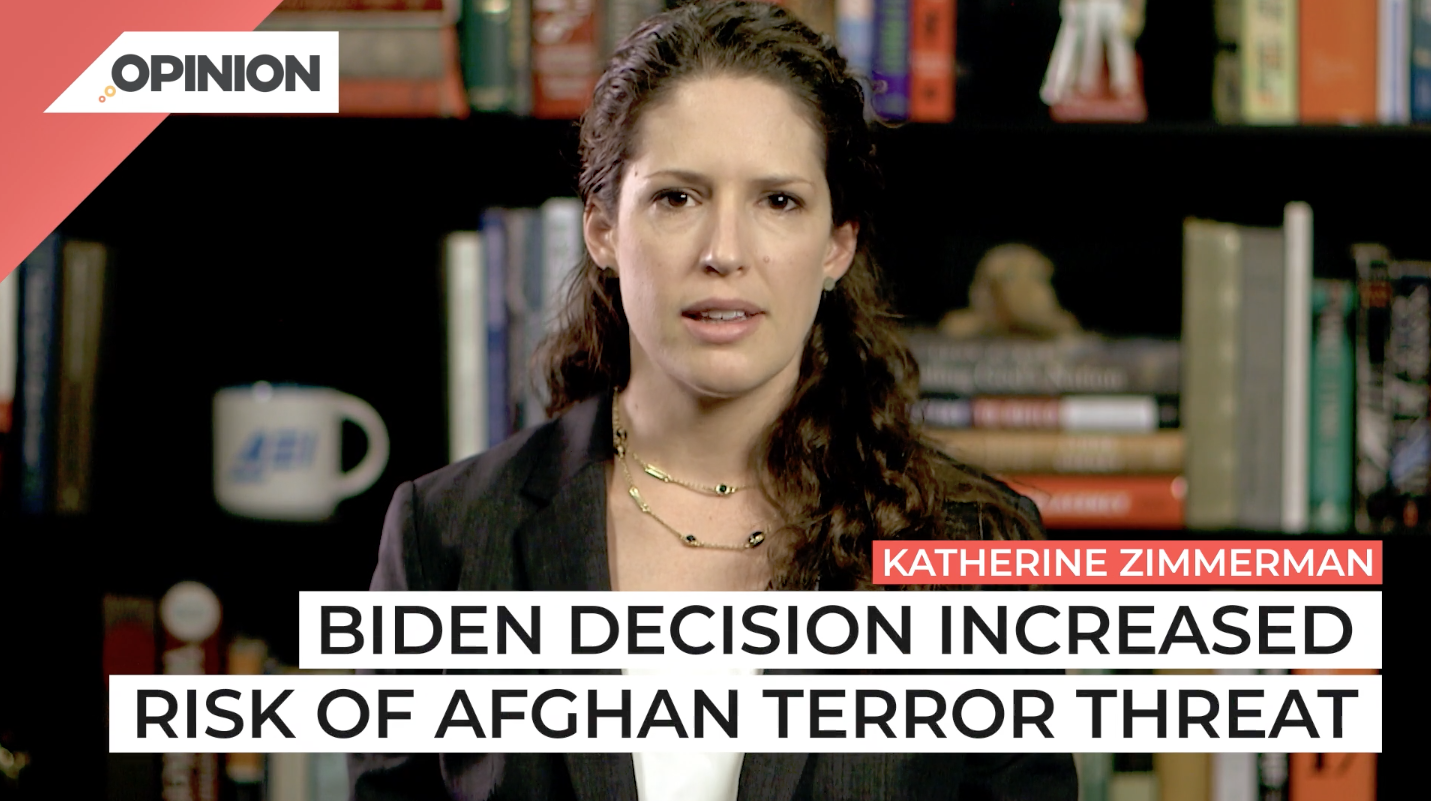
Commentary
-
Our commentary partners will help you reach your own conclusions on complex topics.
President Joe Biden is right about something: The terror threat has metastasized across the world. But the President was wrong to leave Afghanistan off his list of danger spots.
President Biden ended the US presence in Afghanistan, but not the requirement for counterterrorism operations there. Recent US intelligence shows both the Islamic State and al Qaeda groups in Afghanistan will soon be able to attack the West. Hence, the Biden administration’s discussion of new “over-the-horizon” capabilities to keep the American homeland safe.
But what does over-the-horizon actually mean? Realistically, it’s a buzzword that masks how much our ability to counter threats from Afghanistan has worsened now that the US no longer has a base in Afghanistan or a neighboring country.
The parallels the Biden administration has drawn to other counterterrorism operations in Somalia, Syria, and Yemen, rapidly fall short.
In essence, over-the-horizon substitutes signals and satellite intelligence—what terrorists are saying and where they are—for on-the-ground information, and relies on drone strikes instead of special forces to target cells.
But it is considerably less effective than human intelligence and ups the odds that the United States will miss a developing threat. An example of a near miss is found in Somalia: In 2019, the US and partners uncovered a developing terror plot by al Shabaab focused on targeting commercial aviation. But we got lucky. The US military “stumbled” on the information that led to the unraveling of the plot.
The loss of access to Afghanistan both in terms of intelligence and ability to react to threat streams means we are increasingly relying on luck to keep us safe. The intelligence picture has deteriorated. The CIA has worked with a network of informants to develop a reliable threat assessment. That network is gone. Our Afghan sources have fled the country or are being hunted down systematically by the Taliban.
Why any Afghan would trust the US after America’s abandonment of its Afghan allies is unclear.
Drone strikes remain a tempting but limited counterterrorism solution. They disrupt current operations but time and again, the terrorist networks reconstitute and develop as new threats.
Even so, the US has yet to find regional basing—blocked in part by Russia—closer than the Gulf states to run drone operations. Moreover, the intelligence, surveillance, and reconnaissance, or ISR, that drones provide is already in high demand, and drones must now spend hours in flight before providing ISR. Finally, even with new missiles designed to minimize civilian casualties, effectively targeting urban-based terror cells is challenging, as the mistaken drone strike on August 29 in Kabul revealed.
The comparison to US counterterrorism operations elsewhere doesn’t hold. The US has small special forces teams based inside of Syria and Yemen, and is actively reconsidering redeploying special forces to Somalia. The US also has military basing in neighboring countries to Somalia, Syria, and Yemen. Additionally, it has counterterrorism partners on the ground: the Syrian Democratic Forces, the Somali Danab forces, and both Emirati special forces and Emirati-trained Yemeni forces in Yemen. None of that exists in Afghanistan.
As tempting as it is to work with the Taliban against the rising threat of the Islamic State in Afghanistan, that partnership is short-sighted. The Taliban still provides sanctuary to al Qaeda; it freed senior al Qaeda operatives from prisons in Afghanistan, and will not break its support of al Qaeda. Relieved from counterterrorism pressure, al Qaeda will again develop external attack capabilities.
Finally, the global threat has shifted significantly since the US withdrawal. Even before, the global jihadist movement had more fighters in more countries than ever before. The US and its partners were not winning.
But the Taliban’s victory in Afghanistan has reenergized the global jihadist movement. For adherents, drone strikes and counterterrorism operations are disruptive, but by no means a deterrent.
They have understood that they can outlast the West over time. Worse, they can see how to win and have the greatest weapon of all now: hope.
-
US should help Yemen fight Houthis
Recent Houthi attacks on U.S. Navy vessels and U.S. counter-strikes against Houthi targets in Yemen have triggered a foreign policy debate on how the United States should proceed and on whether a larger U.S.-Houthi conflict might be imminent. Houthi leaders say that their aim is to impede Israeli trade and shipping, even though many of… -
US must respond to threat from Iran-backed Houthis
Last month, the commander of Iran’s Islamic Revolutionary Guards Corps Quds Force told the head of Hamas’ military wing that Iran will do “whatever it takes” to support them in its war with Israel. Meanwhile, the Iranian-backed Houthi rebels in Yemen intensified attacks on commercial ships in the Red Sea, prompting U.S. warships to shoot… -
US, Israeli counterterrorism policy must adjust after Hamas attack
Revered Israeli and U.S. intelligence agencies failed to detect the signs of an imminent Hamas attack on Israeli villages near the Gaza Strip. The surprise attack was planned within Hamas’s military wing and highlights both Israel’s intelligence blind spots as well as Hamas’s use of “old-school techniques” like in-person communication. Straight Arrow News contributor Katherine… -
US must sustain pressure against al-Qaeda
The United States and its allies have severely reduced the capacity for al-Qaeda, the terrorist group behind the 9/11 attacks, to organize or carry out any large-scale terrorist attacks against the U.S. homeland. Recent U.S. intelligence assessments suggest al-Qaeda is weaker than ever in Afghanistan, while experts and international observers continue to warn that al-Qaeda is… -
African coups demand US policy changes
A string of recent military coups toppling governments in the African Sahel, from Guinea to Sudan, poses new risks and challenges to the United States. France, formerly a key ally in African security affairs, has also massively reduced its forces on the continent, at times being chased out by pro-Moscow forces. Straight Arrow News contributor…
Latest Opinions
-
 Getty Images
Getty Images
Sweden sees worst mass shooting in nation’s history; 11 dead
-
 Reuters
Reuters
First migrant flight lands at Guantánamo Bay
-
 Reuters
Reuters
Trump proposes US ‘take over’ Gaza strip
-
 No Fallen Heroes
No Fallen Heroes
Exploring the role of psychedelics in healing PTSD among veterans: Weapons and Warfare
-
 AP Images
AP Images
Student protests erupt in LA over Trump administration’s immigration policies
Popular Opinions
-
In addition to the facts, we believe it’s vital to hear perspectives from all sides of the political spectrum.






